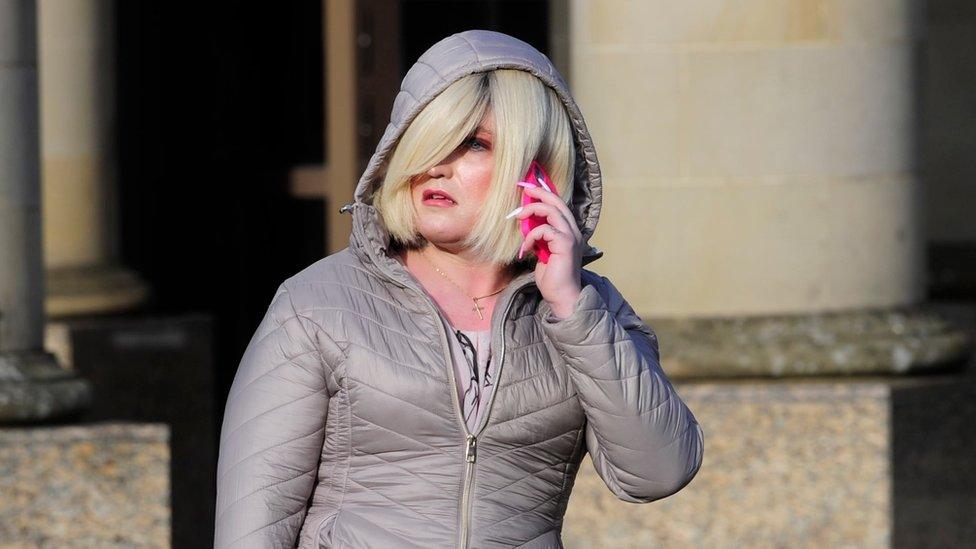Prison bosses defend sending rapist Isla Bryson to women's jail
- Published
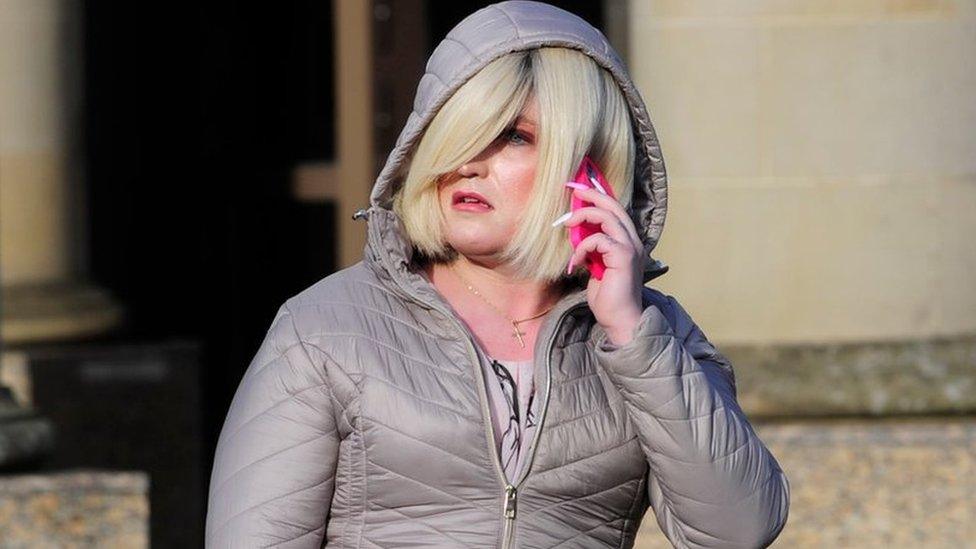
Isla Bryson was convicted of the rapes of two women carried out before she changed gender
Prison bosses have defended the decision to send a trans woman rapist to be assessed in a women's prison.
Isla Bryson, 31, was convicted of two rapes last month and was initially sent to Cornton Vale before being moved to the male estate amid a public outcry.
Holyrood's justice committee heard the Scottish Prison Service (SPS), not politicians, decided where to send her.
The SPS said its officials make such operational decisions based on policy and information available at the time.
When asked who took that decision, chief executive Teresa Medhurst said she was not "at liberty" to reveal the individual - but added that she was ultimately accountable.
Bryson had been remanded to the jail in Stirling after being convicted of raping two women in Clydebank and Glasgow in 2016 and 2019.
Having initially been charged as Adam Graham, Bryson then self-identified as a woman while awaiting trial.
She was initially held at Cornton Vale - Scotland's only all-female facility - during a 72-hour segregated assessment period, before being moved to HMP Edinburgh.
Justice Secretary Keith Brown said he "had faith" in the SPS policy on housing trans prisoners.
Mr Brown told the committee he did not learn about the transfer of Bryson to a women's prison until he heard media reports.
"The process that was followed in this case was the process that was always followed," he said in responses to questions from Scottish Conservative MSP Russell Findlay. "I had faith in that process."
Mr Findlay later criticised the justice secretary for "bluster and evasion" at an evidence session that was supposed to cast light on the process.
Prisons chief Teresa Medhurst said the placement of Bryson was an "operational matter" for the SPS.
She said she became aware of ministers' concerns on the case during a conversation with government officials during the case management process over Bryson's segregation.
"It was in no way a ministerial decision, it was for SPS," she said, adding later: "I am accountable for all decisions within the organisation."
Asked if she felt it was "appropriate" to house a rapist in the women's estate, Ms Medhurst said: "It's not a simple process and at the point of time where someone is making a decision on the location of an individual, they will have extremely limited information and make the best decision at that time, given both the circumstances and our policy position."
She added that criminals come to the prison service from courts with "not a lot of information", and the sharing of information could be improved on.

Bryson was charged with the rape offences while known as Adam Graham
Further concerns had also been raised over the case of violent prisoner Tiffany Scott, previously known as a man called Andrew Burns, who had an application to move to a women's prison approved.
Critics argued vulnerable women prisoners, many of whom were victims of male violence, were being placed at risk.
Scottish Labour MSP Pauline McNeill said females in custody faced a loss of privacy and dignity, citing reports from a former prisoner at Cornton Vale that she had been frightened by an "obviously aroused" trans prisoner in the showering area.
Ms Medhurst said this was unlikely because they had CCTV in all communal areas, and in her experience of working with a trans prisoner the women in custody were "incredibly supportive" and "incredibly curious about her".
In the wake of the Bryson case last month, the justice secretary announced an "urgent review" into the case and a "pause" on transgender prisoners with a history of violence against women being placed in female jails in Scotland.
The outcome of the review, which was published earlier this month, showed the SPS took the decision to take Bryson to Cornton Vale instead of HMP Barlinnie in Glasgow - as was ordered by the judge in the case - while the offender was in transit.
A "lessons learned" review would not be published in full because of the personal information about Bryson and SPS staff, the justice secretary said.
But Mr Brown said SPS process was followed and no women were "at risk of a harm as a consequence of the management of [Bryson]".
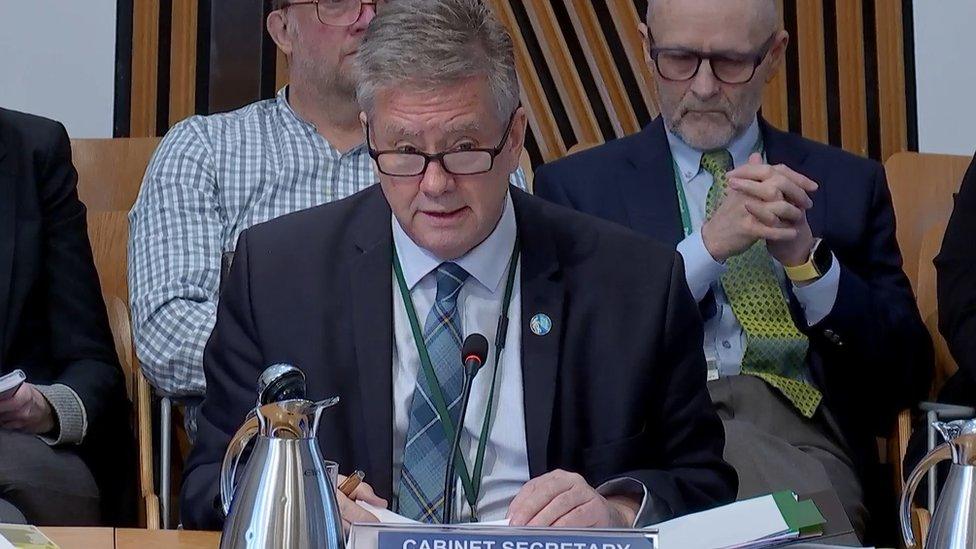
Justice Secretary Keith Brown said no women were put a risk when Bryson was in Cornton Vale
He said he backed the precautionary approach of keeping trans prisoners convicted of violence against women to be initially held in the prison estate matching their birth gender.
The review also calls for improvement to communication around trans prisoners to allow "advanced alert" for the prison service preparing to transfer prisoners from the courts, Mr Brown added.
The controversy coincided with a wider SPS review into the handling of trans prisoners which remains ongoing.
Ms Medhurst said she would be disappointed if the full SPS review on prisoners was not completed this year.
Critics of the Scottish government's gender reforms have argued that situations such as Bryson's would become a "bigger problem" if the Gender Recognition Reform Bill was enacted.
The bill has been blocked by the UK government over its potential impact on equality laws that apply across Scotland, England and Wales.
The current prison policy, which was introduced in 2014, operates on a basis of gender self-identification.
Neil Rennick, Scottish government director of justice, said none of the five trans women prisoners currently in the female estate had "live convictions of violence against women".
Related topics
- Published10 February 2023
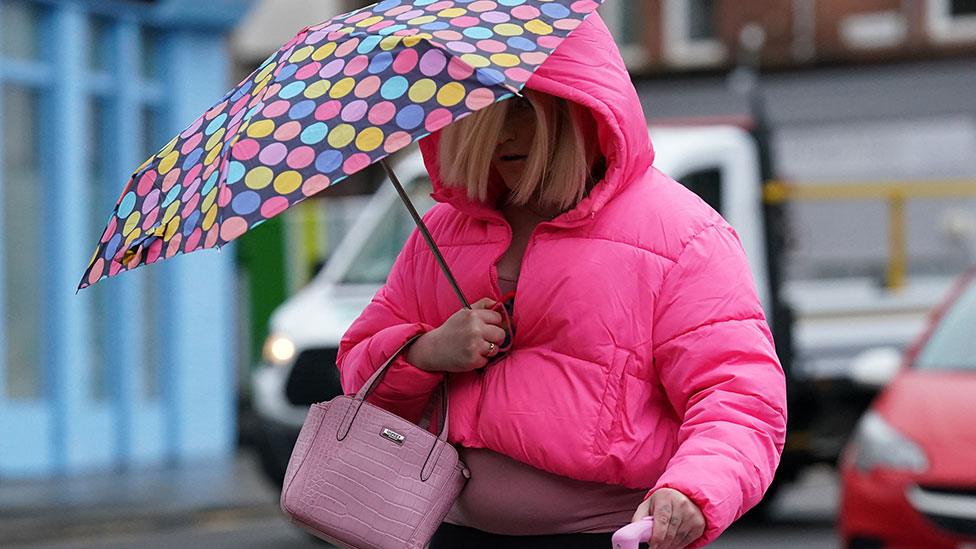
- Published2 February 2023
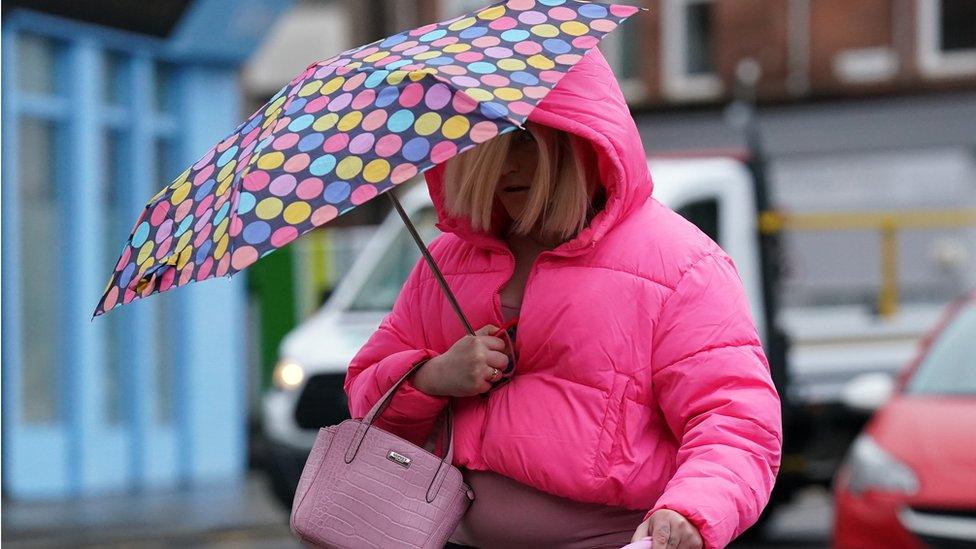
- Published27 January 2023
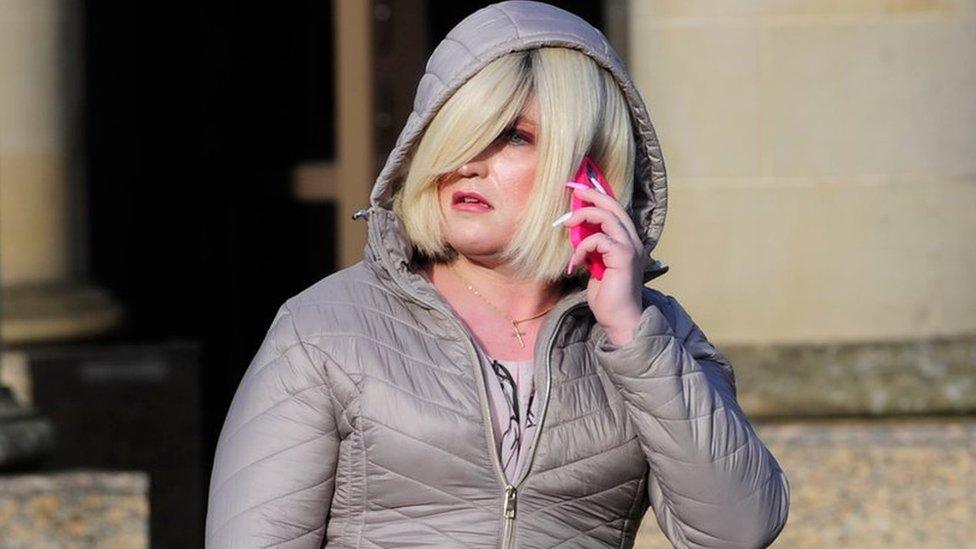
- Published26 January 2023
